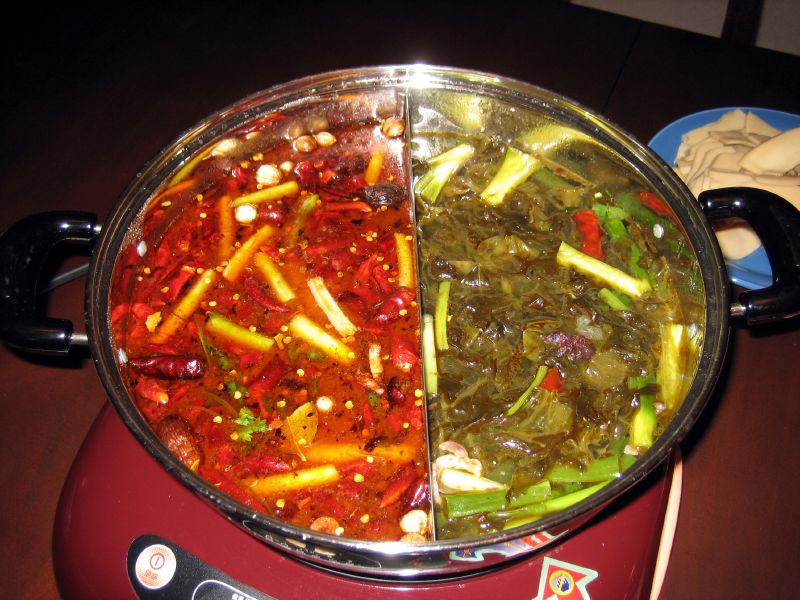I had a reservation for four at 7 pm on Saturday night. I had reminded the three friends joining me for dinner to be punctual, and we were all at the restaurant as the clock struck seven. Still, we had to wait fifteen minutes before we were finally seated in the crowded restaurant.
We were at Shabu-Zen, a hotpot restaurant in Allston, Massachusetts. As we settled into our booth by the window, the cacophony of voices speaking in English, Mandarin and Korean mixed with the clatter of plastic plates gradually coalesced into an incomprehensible din. The noise hung like a heavy fog, as if trapped by the humidity from the permanent clouds of steam over the pots of boiling broth on the hotplates in the middle of each table. The earthy brown furnishings glowed in the soft, warm light. We did not hear the ambulance as it passed by on Brighton street right outside our window. Here, it was OK, if not normal, to place your elbows on the table during the meal, and to reach over to take or place food on your companions’ plates without asking.
Having moved across the world from Singapore to Boston, Shabu-Zen is one of the few places where I could indulge in my favorite way to have a meal. Hotpot is an immensely enjoyable eating style from Asia that requires participants to cook and eat from a central, shared pot of broth. The meal becomes an intimate, personal experience, as participants put in their energy and effort to cook collaboratively. This is not an activity for a business lunch or a first date; this is something to do “with people who are important, or whom you want to be important to you,” explained Chris Maggiolo, a graduate assistant in the gastronomy department at Boston University.
Sharing food – a precious resource – is always regarded as a symbol of care and hospitality, Maggiolo said. In hotpot, we have to be extra conscious of putting raw meat or seafood in the pot, as raw meat or seafood can introduce bacteria into the pot that could contaminate the food that is nearly done. Then, someone at the table would have to make a hard decision to let the food overcook, or risk having a stomachache later.
Our food arrived. An array of raw seafood – slices of cod, salmon, scallop and squid, shrimp neatly cleaned and cut down the middle, clams and a single mussel – lay limply on a fish-shaped plate while bright red slices of beef and pork came in perky rolls. We attacked the vegetables, emptying the napa cabbage, corn, carrots and mushrooms into the broth, so as to let the broth absorb their flavors. Once the broth started bubbling angrily, I picked up a slice of meat with my chopsticks and dunked it. Two friends promptly followed suit. We put in some extra meat for the one friend who was still wrestling with his chopsticks. I barely took two breaths as we watched the meat unfurl, shrink and shrivel into a wrinkled, grey morsel. Itadakimasu, I said, and listened impressed as a friend explained to another that it is the Japanese version of bon appétit.
It was not just food we shared. According to Maggiolo, cooking together is a shared act of creation. At the hotpot, we had to decide together what’s going in, when, and how long it should stay in the pot. My friends and I in Singapore can get militant about cooking our food for the right amount of time. It becomes almost a point of pride if we can get a slice of fish cooked just enough that it melts in your mouth without upsetting your stomach later, and even better if we had made it for another person. But when my friend asked if I thought his squid was done, I honestly couldn’t tell. I just shared my trick with him – when the food looks like it is good enough to eat but you are unsure about it not being cooked thoroughly, count to ten.
Almost two hours went by before it was time to leave and surrender our table. Nowadays, it is unusual to spend so much time on a meal. According to Maggiolo, since the industrial revolution, societal values have changed, placing far more emphasis on production and productivity and leaving no time for people to enjoy a meal with their family. Instead, we would “eat by yourself very quickly and go back to work,” said Maggiolo. Perhaps, that would slowly change as people rediscover the joys of communal eating through hotpot.

